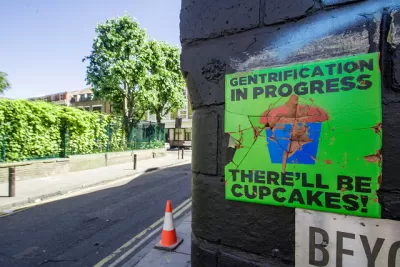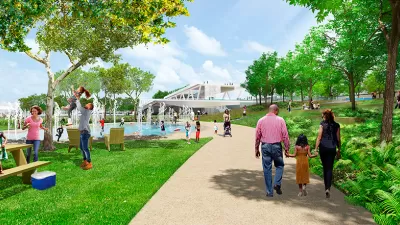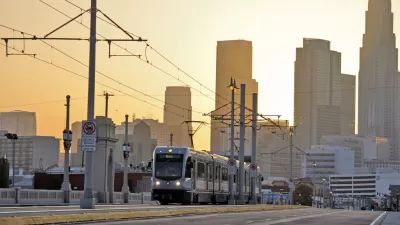“We could use some gentrification here.” Let's never say this—we must refrain from debating the long-term likelihood of gentrification in distressed places.

Does this sound familiar? A persistently poor, highly distressed, and long-screwed-over neighborhood is organizing around, lobbying for, or about to get some kind of reinvestment and someone raises the specter of gentrification. Those supporting the reinvestment get frustrated and say something along the lines of “Are you kidding? This place will never gentrify!” or “We could use some gentrification here.”
I think this particular exchange is one we should all commit to never having again.
Why You’re Both Right About Gentrification
Those who dismiss concerns of gentrification have some data behind them. Rapid housing cost appreciation and demographic turnover is a very real and growing problem, but it is still concentrated in a few high-cost markets, and a few select neighborhoods of other cities. Most poor census tracts have stayed stubbornly poor for decades, and more have slipped into poverty recently than climbed out of it.
Housing affordability and displacement are actually problems everywhere, but in most places it’s not due to gentrification. Many of the people who are frustrated when gentrification is brought up see the topic as part of a coastal/hot-market narrative that leaves their places out, and gives them policies that aren’t relevant for their realities—like hot-market centric inclusionary housing policies or funding models that don’t account for an appraisal gap. They worry that the very real, current needs of places being left behind are going to be sacrificed by fear of some unlikely future scenario.
Those who raise the concern also have a point, though. First, we should all remember that in the 1970s, the idea that New York City—especially the Bronx and much of Brooklyn—would gentrify was laughable. Or Hoboken and Jersey City.
FULL STORY: It Doesn’t Matter if Your Neighborhood Is Going to Eventually Gentrify

Alabama: Trump Terminates Settlements for Black Communities Harmed By Raw Sewage
Trump deemed the landmark civil rights agreement “illegal DEI and environmental justice policy.”

Planetizen Federal Action Tracker
A weekly monitor of how Trump’s orders and actions are impacting planners and planning in America.

The 120 Year Old Tiny Home Villages That Sheltered San Francisco’s Earthquake Refugees
More than a century ago, San Francisco mobilized to house thousands of residents displaced by the 1906 earthquake. Could their strategy offer a model for the present?

Ken Jennings Launches Transit Web Series
The Jeopardy champ wants you to ride public transit.

BLM To Rescind Public Lands Rule
The change will downgrade conservation, once again putting federal land at risk for mining and other extractive uses.

Indy Neighborhood Group Builds Temporary Multi-Use Path
Community members, aided in part by funding from the city, repurposed a vehicle lane to create a protected bike and pedestrian path for the summer season.
Urban Design for Planners 1: Software Tools
This six-course series explores essential urban design concepts using open source software and equips planners with the tools they need to participate fully in the urban design process.
Planning for Universal Design
Learn the tools for implementing Universal Design in planning regulations.
Clanton & Associates, Inc.
Jessamine County Fiscal Court
Institute for Housing and Urban Development Studies (IHS)
City of Grandview
Harvard GSD Executive Education
Toledo-Lucas County Plan Commissions
Salt Lake City
NYU Wagner Graduate School of Public Service




























